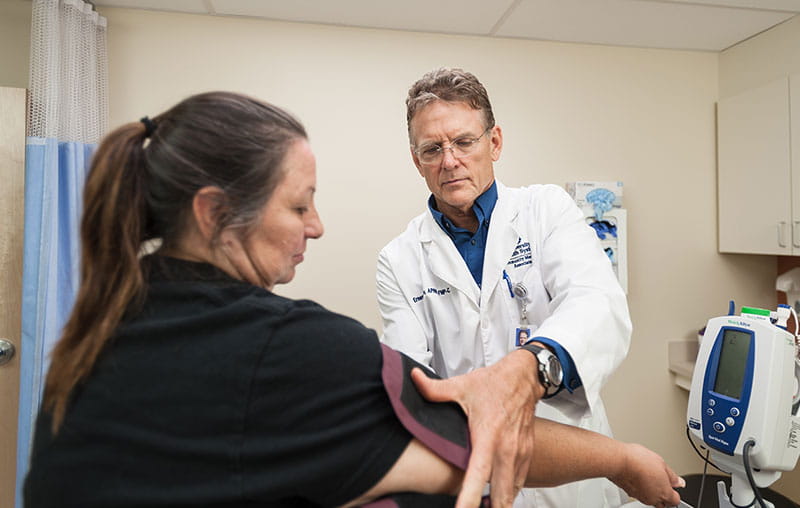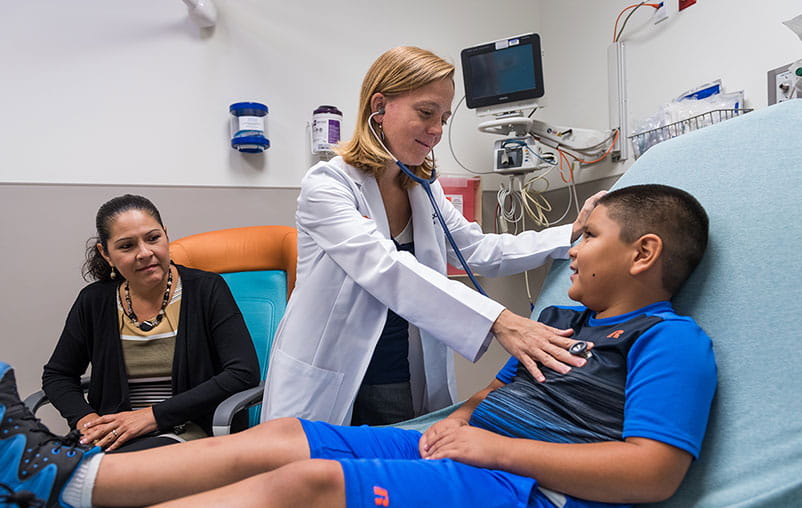At a recent doctor’s appointment, you were told you may have primary ovarian insufficiency. But what is that exactly?
If you’ve been diagnosed with primary ovarian insufficiency, also called POI or premature ovarian failure, you’ve probably been experiencing symptoms similar to those women experience when they go through menopause. Do irregular menstrual periods, hot flashes and poor concentration sound familiar?
While these symptoms overlap with those of menopause, the two conditions aren’t the same—they differ based on the age of women who are affected.
Approximately 1-2% of women aged 40 or younger experience POI, which is when the ovaries stop working normally before age 40.
Causes of Primary Ovarian Insufficiency
What causes a woman’s ovaries to fail at such a young age? In the vast majority of cases—up to 90%, in fact—the cause is unknown.
POI is associated with a low number of follicles, which are the egg sacs in the ovaries. Various problems can affect the follicles causing early loss or destruction. There may be no known cause or there may be a known issue such as:
- Autoimmune diseases
- Certain genetic disorders
- Chemotherapy or radiation therapy
- Exposure to toxins such as chemicals or pesticides
- Low number of follicles
- Metabolic disorders
Certain factors can increase a woman’s risk of developing POI, including genetic changes, a family history of POI, or cancer treatments.
Symptoms of Primary Ovarian Insufficiency
Women who develop primary ovarian insufficiency may experience a number of symptoms similar to those experienced during perimenopause or menopause. This includes:
- Diminished sex drive
- Hot flashes
- Increased irritability
- Mood swings
- Night sweats
- Painful sex
- Poor concentration
- Vaginal dryness
Along with these symptoms, the most common symptom of POI is irregular or occasionally missed periods. Irregularity in the menstrual cycle can lead to difficulty conceiving. If you’re experiencing any of these symptoms, talk with a women’s health provider.
POI is not the same thing as premature menopause, where a woman’s periods stop altogether at an early age. Women with POI may still become pregnant in some cases, while women cannot become pregnant naturally after menopause.
Diagnosing Primary Ovarian Insufficiency
Your provider can use a number of tests to confirm a POI diagnosis, which is done by ruling out other medical conditions that can cause these symptoms.
This will include:
- Physical exam
- Blood and urine tests to check hormone levels
- Pelvic ultrasound to examine the ovaries
Treatment and Management
While there’s no way to restore the normal function of the ovaries, a number of treatment options can help women manage the effects of POI. If you’re diagnosed with the condition, your treatment plan may include:
- Calcium and vitamin D supplements to maintain bone health and lower the risk of osteoporosis
- Hormone replacement therapy to supplement the hormones your body should still be producing
- In vitro fertilization with donor eggs or embryos if you wish to become pregnant
- Lifestyle changes such as regular exercise and a healthy diet to help control your weight and lower your risk of chronic conditions
If a known medical condition, such as an autoimmune disease, is the cause of POI, your treatment plan will also include treating that condition.
Living with Primary Ovarian Insufficiency
The symptoms caused by POI can be challenging enough, but the condition can also increase the risk of other conditions, including:
- Anxiety
- Depression
- Dry eye syndrome
- Heart disease
- Thyroid problems
- Osteoporosis
These conditions are usually associated with the drop in hormone levels caused by ovarian insufficiency.
If you’ve been diagnosed with POI, part of living with the disease includes taking steps to prevent other medical conditions. Consider it the ultimate form of self-care—keeping your body and mind healthy.
Healthy Habits
Practicing healthy lifestyle habits, including:
- Moving your body regularly
- Eating nutritious foods
- Finding ways to manage stress
- Getting enough quality sleep
It’s also important to pay attention to your mental health, since fluctuating hormone levels can wreak havoc on you mentally, too.
Talk with Your Provider
If your diagnosis feels overwhelming, start small. Talk with your provider about ways you can manage the specific symptoms you’re experiencing. Being able to get rid of night sweats, for example, can go a long way toward helping you feel more like yourself.
Above all, be kind to yourself. A POI diagnosis is something beyond your control, and you can only focus on taking care of yourself.
Women’s Health at University Health
Find compassionate women’s health care at University Health in San Antonio. Our gynecologists are experts in treating conditions affecting the female reproduction system.





